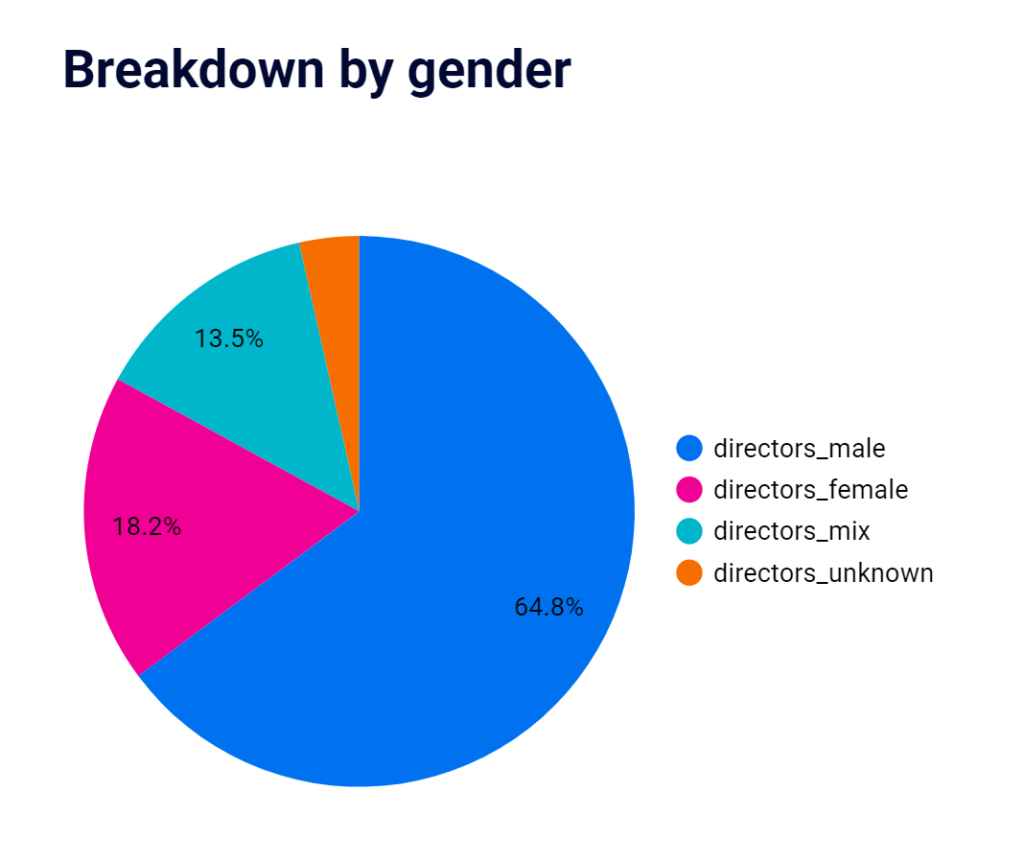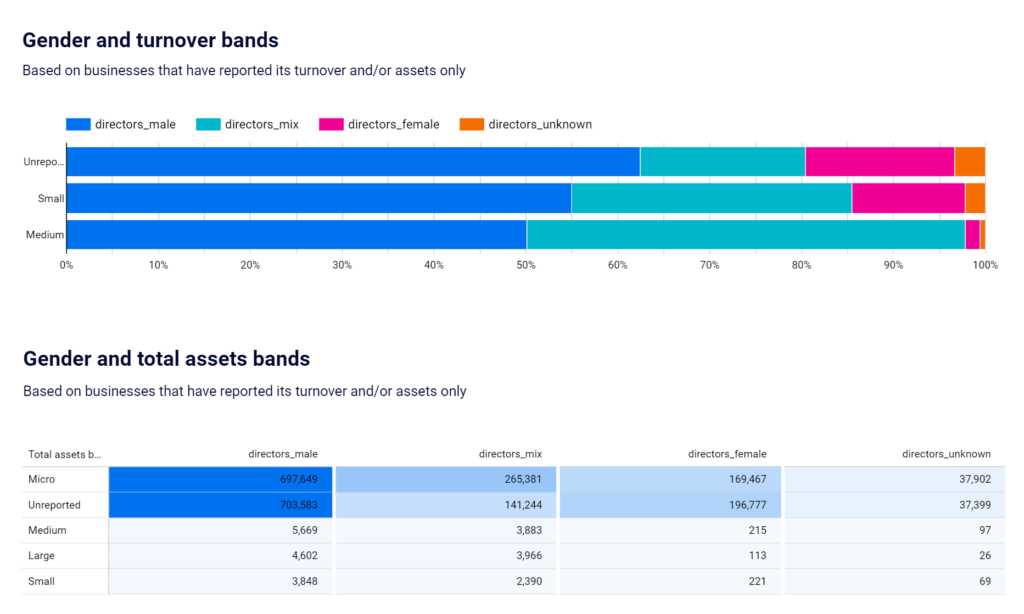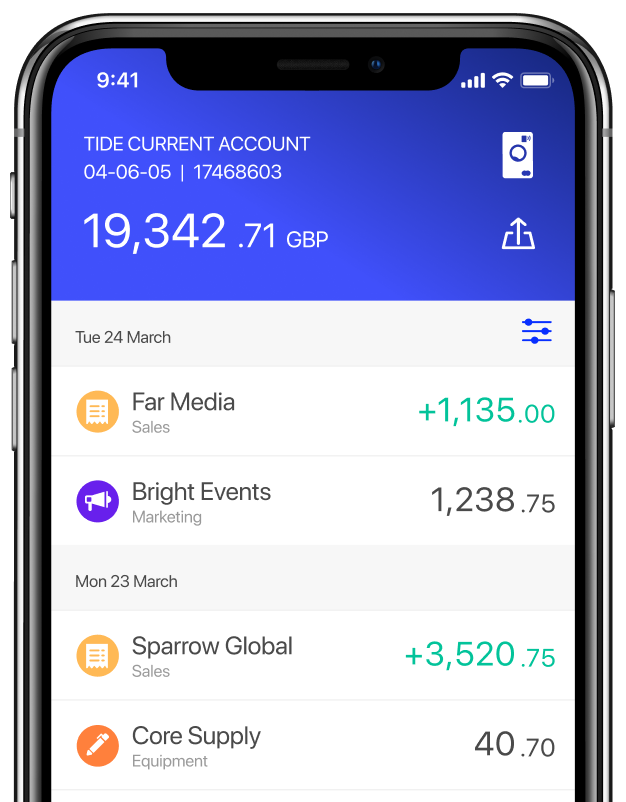
Gender equality, entrepreneurship, and equal pay: here’s what the data say

Does your gender affect your business fortunes?
As we approach Equal Pay Day, we’ve analysed thousands of records on recently formed businesses to look for differences in the volumes of men and women starting their own companies. What can we learn from this data? And what can men and women do to improve the diversity of the UK’s entrepreneurs?
What is Equal Pay Day?
Now is the perfect time to talk about gender, income, and entrepreneurialism, because 20 November 2020 is Equal Pay Day, the day on which women stop earning relative to men.
The Fawcett Society, a campaign group that promotes gender equality, calculates Equal Pay Day each year, based on the previous year’s gender pay gap data. For 2019, the gender pay gap shows that women earn, on average, 11.5% less than men. In 2020, Equal Pay Day arrives 6 days later than 2019, a slight improvement which may be influenced by data collection challenges caused by the pandemic.
Women founders and pay
At Tide, we’re committed to supporting business owners from diverse backgrounds. Specifically, we want to help at least 100,000 women and 20,000 people from BAME backgrounds to get started on their entrepreneurial journey.
Why should company founders be more diverse?
Diversity of people produces diversity of thought. And companies that are built around diverse teams generally perform better. This is supported by numerous studies from a wide range of organisations, including Scientific American, McKinsey and Credit Suisse.
Despite there being an awareness that diverse teams are effective and resilient, the majority of startup investment, mentoring and attention is focused on male-dominated teams. This represents a major missed opportunity.
The Alison Rose Review of Female Entrepreneurship found that, even though the UK is the startup capital of Europe, only one in three UK entrepreneurs is female. The UK fares poorly compared to our global counterparts, with only 5.6% of UK women running their own companies, far fewer than the 15% in Canada or 11% in the US. This review also suggested that boosting female entrepreneurship could add £250bn to the economy.
Tim Levene, CEO of Augmentum FinTech, also sees a lack of diversity in investment: “90% of capital goes to white male founders – it’s unacceptable.”
Marilena Ioannidou of British Business Investments echoes this sentiment: “When looking at female founders and venture capital, we found that only 1 penny in every pound goes to funding all-female led businesses.”
Gender and company formation: the data
We’ve worked with DueDil to harvest company formation data to look at the role gender plays in the formation and continuation of startups.
We’ve analysed the data to look at three key questions:
- How does location change the gender divide?
- How does gender influence the types of companies formed?
- How does gender influence company stability and profitability?
Let’s dig into the data and see what we can learn. Once we’ve reviewed the findings we’ll consider what you can do to reduce the gender pay gap and push for complete gender equality.
Click on the icon at the bottom right of the dashboard to enlarge to full screen, and navigate through the full report by using the arrows at the bottom-left.
Company founders and gender in numbers
In the last year, a significant majority of newly formed businesses (755,273) were created solely with male directors. Just 211,721 companies were formed with only female directors. And 157,460 companies had a blend of male and female directors.
Here are those overall numbers in percentages:
- Male only: 64.8%
- Female only: 18.2%
- Mixed: 13.5%

This data raises all kinds of questions about the causes of this wide gap. Why do so many more men start companies than women? What can be done to encourage more women to develop their own business ideas? What barriers do women face when starting a new venture? We’ll attempt to answer these questions later.
Now, it’s time to look at how location affects these numbers.
Regional variations in the gender mix of company founders
Does your location play a part in how likely you are to start a company? Are women in the Midlands more likely to start a company than their peers in the South West? Let’s take a look.

Female-only founders
Perhaps unsurprisingly, London records the highest number of female-only company formations, at 17% based on businesses formed in the last 5 years. The rest of the UK is not far behind though, painting a fairly consistent picture of low numbers of women starting companies alone. The North East and Northern Ireland prop up the foot of the table, at 14% and 12% respectively.
The difference between the regions at the top and bottom of the chart is less than 5%. This suggests that the results are broadly consistent across the UK. No region is successfully tackling the gender startup gap.
Male-only founders
Based on the last 5 years, the North West, North East and London all top the chart, with 63% of their new company formations led by male-only directors.
Once again, the findings are broadly consistent across all regions. The spread from the top of the chart to the bottom is just 6%.
Mixed gender founders
The findings here throw up a few surprises. For starters, London is the worst performer when calculated as a percentage split, something that is counterintuitive given the cosmopolitan, populous and progressive nature of the capital.
The second difference between this and the previous two tables is the larger spread between the poles. With the South West leading on 24% and London trailing on just 14%, there is a gap of 10% in these national results.
Why is there such a big difference between the numbers of mixed-gender teams starting companies, depending on where you are in the UK? Why are so many more mixed-gender teams starting companies in the South compared to London? Once again, these are questions that the data doesn’t answer.
Impact of gender on types of companies formed
Does gender make a difference to the types of companies that people create? The data suggests a dramatic difference here. While the top 20 lists of company types have many overlaps and are broadly consistent overall, their levels of popularity are significantly different – in many cases a complete inversion between the tables.

For example, ‘construction of buildings’ is the fifth most popular business type for men, but 17th for women. And ‘human health activities’ is 3rd for women but 16th for men.
Biggest gender divides by category
When we look at the numbers of women Vs men starting different business types, some of the biggest divides are in traditionally male-dominated industries, such as construction.
However, some of the biggest gaps in the numbers are in industries that are also popular with women, such as real estate and computer programming. The reason for the gap isn’t so much a lack of popularity, it’s just the sheer difference in volume. Men create far more businesses overall, so of course there are massive gaps when we look at individual categories.
This distinction is important because we don’t want to suggest that certain business categories are unpopular or unsuitable for women or men.
While these gender-split lists include lots of overlaps, there are some exceptions. Let’s look at popular business categories that only appear on one list.
Popular business categories for women
The following business types only make the top 20 list for women:
- Legal and accounting
- Employment activities
- Social work activities without accommodation
- Residential care activities
Perhaps the most surprising items on this list are ‘legal and accounting’ and ‘employment activities’. Social work and caring jobs are often dominated by women, so their appearance on this list is less remarkable.
Popular business categories for men
These business types only appear on the top 20 list for men:
- Wholesale and retail trade of motor vehicles
- Architectural and engineering activities
- Motion picture, video and television production
- Sports activities and amusement and recreation
Gender impacts on company stability and profitability
How does the gender of directors impact a company’s ability to earn and endure? Is there any advantage to being male, female, or a mixed-gender team?
Let’s look at the data, while keeping in mind the obvious limitations of this kind of analysis. We can look at the numbers, but we can’t ascertain the role of certain factors in each outcome. For example, the data tells us the gender of the directors, but not whether gender makes an impact, or simply the timing of the company’s creation, or the fact that having any business partner can help you overcome challenges.

The turnover data reflects our other datasets because it shows that the majority of companies are founded by male-only directors or teams. Several interesting details stand out in this chart:
- Larger companies seem more likely to have mixed-gender director teams
- There are fewer female-only founders in the ‘medium’ company turnover bracket
What can be done to shrink the entrepreneurship gap?
There are likely to be many forces at play here, far more than we can adequately cover in this article. Factors that may explain the gap between the numbers of men and women starting companies include:
Women may be more risk-aware. Several studies have shown that women are typically more risk-aware than men. Although of course this may become an advantage if it means avoiding mistakes.
Women may be time-poor compared to their male counterparts. Despite all the advances in gender equality, women still do a larger share of the housework. This is backed by countless studies of household roles and responsibilities.
Women may be more likely to wait until they are fully qualified. Data from LinkedIn found that women are less likely to apply for jobs they view online, and are less likely to apply for jobs that represent a stretch. Men are more inclined to take leaps forward, even if they aren’t 100% ready.
If these are some of the challenges that face female entrepreneurs, what can be done to overcome them?
Support, mentorship and advice are three simple approaches that can help women start a new venture.
Finding a mentor is a particularly effective way to explore new ideas, identify resources, overcome barriers and get things moving. Mentors may help any entrepreneur to avoid pitfalls, devise a strategy, create a brand, define your pricing, and also manage some of the administrative and technical challenges efficiently. If you can find a mentor who believes in you and your idea, you may find it easier to move quickly with confidence.
Copywriter and trainer Jackie Barrie recommends finding a professional friend who can act as a pricing pal. Every time you are setting prices or rates for your fees, services or products, you get a second opinion from your pricing pal. This can help you feel more confident about how you charge, and ensure you never under-price your offerings.
Sources of support
Your local chamber of commerce may offer advice and support, and may be able to connect you with regional or local opportunities for mentorship.
Several women-specific networks exist, offering a variety of free and paid services, including:
- BAWE – British Association of Women Entrepreneurs
- Women Entrepreneurs UK
- Women Mean Biz
- Women in Rural Enterprise
A diverse future awaits
The first step in improving gender equality is recognising that there is a difference between the opportunities and encouragement given to men and women in business.
The good news for everyone is that women and men both have immense value to offer, regardless of whether they start a business alone or in a team.
If you’re looking to start a business, but don’t know where to begin, start talking to friends and family, and start looking for avenues of support. Take little steps to get your business idea out of your head and into the world.
When you are ready – register your business with Tide for only £14.99 🚀
Registering your business with Tide is incredibly fast, easy and only £14.99. You not only get to officially start your company, but you get a free business bank account at the same time, which is the best way to ensure you’re keeping your finances in order from day one. Be your own boss and register your company with Tide!
Photo by RF studio, published on Pexels




